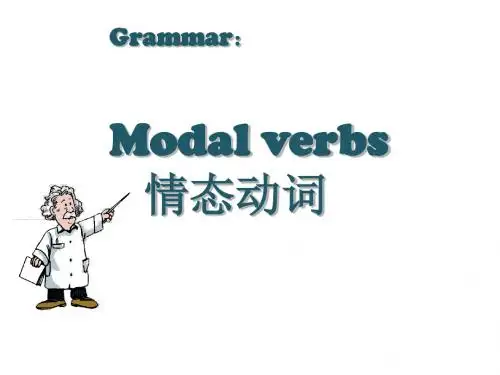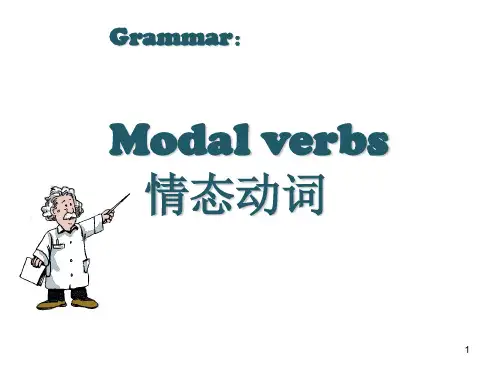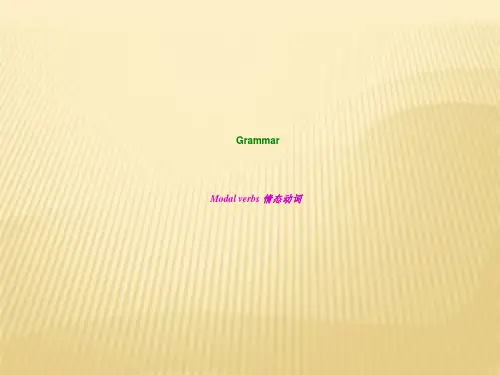9
b)表示“可能”,可用may, might, can, could
may/might:
1.既可以表示现在的可能,也可表示将来 的可能,might在口气上比may更委婉
• 现在:It may/might be true. • 将来:He may/might leave tomorrow.
2.在疑问句中,用can,不用may。 • Can they have missed the bus? • Yes, they may have.
10
may not重音落在助动词上,表示 “不可能”,重音落在否定词上,表 示“不许可” , 比较:
•He may not go tomorrow. •He may not go tomorrow.
•所以在书面语中,表示“不可能” 常用can’t
11
can/could表示现在的可能,口气上 could比较委婉
2表示“许可”和“不许”
a)请求对方“许可”可用can, could, may, might.
may/might较正式,could/might较委婉
表示给予“许可”通常用can/may,而不用 could/might
Could I use your phone? Yes, of course you can. Might I trouble you for a light? You may indeed.
without a dictionary.
• I talked a long time, and in the end managed to make her believe me. 在否定句中,could既可以表示过去一般能 力,也可表示过去某具体事情的能力. • I couldn’t/wasn’t able to play the piano when I was at school.









